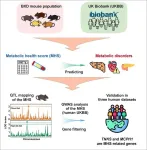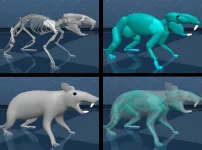The 2024 Warren Alpert Foundation Prize has been awarded to four scientists whose transformational discoveries led to the creation of chimeric antigen receptor (CAR) T cells, a treatment that modifies patients’ immune cells and optimizes their ability to eliminate cancer cells.
CAR T-cell therapy, the first successful example of synthetic biology used in clinical medicine, has saved the lives of tens of thousands of adults and children with blood cancers, including leukemia, lymphoma, and multiple myeloma.
The award recipients are:
Renier Brentjens, Katherine Anne Gioia Endowed Chair of Medicine and deputy director of Roswell Park Comprehensive Cancer Center
Zelig Eshhar, professor emeritus, the Weizmann Institute of Science, chair of Immunology, Division of Research & Development, Sourasky Medical Center, Israel
Carl June, Richard W. Vague Professor in Immunotherapy, University of Pennsylvania Perelman School of Medicine
Michel Sadelain Stephen and Barbara Friedman Chair, founding director of the Center for Cell Engineering at Memorial Sloan Kettering Cancer Center
The $500,000 award, to be shared among the four winners, is given by the Warren Alpert Foundation in recognition of work that has improved the understanding, prevention, treatment, or cure of human disease. The prize is administered by Harvard Medical School. The award winners will be recognized at a scientific symposium on Oct. 10 hosted by Harvard Medical School. For details, visit the Warren Alpert Foundation Prize symposium website.
“The collective work of the four scientists honored this year has propelled the treatment of blood cancers into a new era of immune therapy and added an invaluable new tool to our armamentarium,” said George Q. Daley, dean of HMS and chair of the Warren Alpert Foundation Prize scientific advisory committee. “The discoveries are a striking example of the promise of synthetic biology to redefine the way we conceive and design novel therapies.”
Significance of the work
CAR T cells are genetically engineered immune cells tailored to respond to a specific molecule found on the surface of tumor cells. These cells are a form of immunotherapy — an approach that harnesses the native ability of the immune system to fight diseases, particularly cancer. CAR T-cell therapy represents a milestone in cancer treatment. It propels cancer therapies beyond traditional chemotherapy and radiation treatments, which are often highly toxic and non-specific.
The four scientists honored with this year’s Warren Alpert Foundation Prize each played key distinct and complementary roles in developing CAR T cells and making their use in the clinic possible. Today, CAR T-cell therapies offer great hope for patients with various B-cell malignancies who have relapsed or failed to respond to other therapies. CAR T cell-based approaches could eventually be used to treat solid tumors, as well as a variety of autoimmune diseases and other conditions.
Patients whose blood cancers return after multiple rounds of chemotherapy have few options left for long-term disease control. CAR T cells have offered a new lifeline to these patients. Since 2017, six CAR T-cell therapies have been approved by the U.S. Food and Drug Administration.
“The discoveries of these researchers powerfully exemplify the mission of the Warren Alpert Foundation. Their achievements in the lab harnessed genetic engineering and immunology to create a clinical treatment that enables the treatment of disease and improves human life,” said David M. Hirsch, director and chair of the board of The Warren Alpert Foundation.
Evolution of the science paving the way to CAR T-cell therapy
More than a century ago, physicians observed that patients with cancer who also had bacterial infections experienced curious improvement of their cancers. This observation was the first clue of the immune system’s possible role in cancer recognition and eradication. Physician William Coley in the late 19th century famously treated patients by injecting streptococcal bacteria into their tumors, causing the cancers to shrink.
Building on these early observations, over the past several decades scientists have elucidated exactly how the immune system recognizes and destroys cancer cells. These insights have led to the development of several forms of cancer immune therapy.
Cytotoxic T cells are a major player in the immune system’s ability to detect and fight cancer. They recognize nascent cancer cells and kill them by delivering toxic proteins. However, cancer cells have developed their own tools to evade the immune system, using biological tricks to avoid detection or co-opting immune cells to promote tumor growth.
The collective discoveries of the four researchers led to the design of optimized immune cells that combine T cells’ cancer-killing ability with the specificity of antibodies to spot a desired target — in this case, tumor cells — and disarm it.
Since the first approval of CAR T cells for use in children and young adults with acute lymphoblastic leukemia, CAR T-cell therapies have shown efficacy and have been approved in adults, for other forms of cancer, including large cell lymphoma, follicular lymphoma, mantle cell lymphoma, as well as acute lymphoblastic leukemia. More recently, newer CAR T-cell therapies targeting different molecules have been approved to fight multiple myeloma.
Researchers in both academia and industry continue to explore new ways of using CAR T cells to treat other diseases. These include cancers that form solid tumors, which make up the majority of cancer types, as well as some inflammatory and autoimmune conditions.
The Warren Alpert Foundation Prize recognizes the research of scientists throughout the world. Including the 2024 prize, the foundation has awarded more than $8 million to 83 individuals. Since the inception of the award in 1987, 14 honorees have gone on to receive Nobel prizes.
The 2023 Warren Alpert Foundation Prize was awarded to David J. Lipman for his visionary work in the conception, design, and implementation of computational tools, databases, and infrastructure that transformed the way biological information is analyzed and accessed freely and rapidly around the world.
Other past recipients include:
Drew Weissman, Katalin Karikó, Uğur Şahin, Özlem Türeci, and Eric Huang for pioneering discoveries into the biology of mRNA, for its modification for medicinal use, and for the design of mRNA-based COVID-19 vaccines that set the stage for other mRNA vaccines and a variety of mRNA-based therapies. Karikó and Weissman shared the 2023 Nobel Prize in Physiology or Medicine.
Lynne Maquat and Joan Steitz for discoveries in the biology and function of RNA that reshaped the understanding of RNA’s various roles in healthy cell function and disease-causing dysfunction.
Daniel Drucker, Joel Habener, and Jens Juul Holst for elucidating the function of key intestinal hormones, their effects on metabolism, and the subsequent design of treatments for type 2 diabetes, obesity, and short bowel syndrome.
Edward Boyden, Karl Deisseroth, Peter Hegemann, and Gero Miesenböck for pioneering work in the field of optogenetics.
Francis Collins, Paul Negulescu, Bonnie Ramsey, Lap-Chee Tsui, and Michael Welsh for discoveries in cystic fibrosis.
James Allison, Lieping Chen, Gordon Freeman, Tasuku Honjo, and Arlene Sharpe for discoveries into cancer’s ability to evade immune surveillance, which led to the development of a class of cancer immunotherapies. Allison and Honjo shared the 2018 Nobel Prize in Physiology or Medicine.
Rodolphe Barrangou, Emmanuelle Charpentier, Jennifer Doudna, Philippe Horvath, and Virginijus Siksnys for CRISPR-related discoveries. Doudna and Charpentier shared the 2020 Nobel Prize in Chemistry.
Tu Youyou, who went on to receive the 2015 Nobel Prize in Physiology or Medicine with two others, and Ruth and Victor Nussenzweig for their pioneering discoveries in the chemistry and parasitology of malaria and the translation of that work into the development of drug therapies and an antimalarial vaccine.
Oleh Hornykiewicz, Roger Nicoll, and Solomon Snyder for research into neurotransmission and neurodegeneration.
Alain Charpentier and Robert Langer for innovations in bioengineering.
Harald zur Hausen and Lutz Gissmann for work on the human papillomavirus (HPV) and its role in cervical cancer. Zur Hausen and others were honored with the Nobel Prize in Physiology or Medicine in 2008. END


